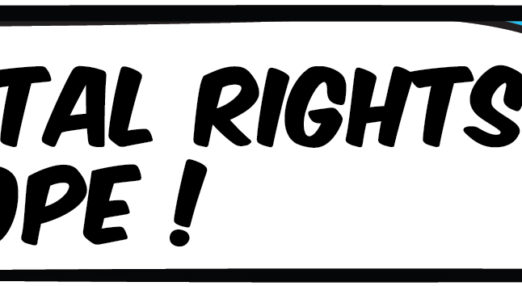Internet Blocking
Filter by...
-
EU Council proposals on open internet – Episode 2, the clown wars
After one year of negotiations, a second element of the telecoms regulation was also agreed by the EU Council: arbitrary, ad hoc law enforcement by internet companies. The Council has decided that this is something that internet companies may do, may not do and may do (Council text, pdf). When the European Commission proposed its […]
Read more
-

Yet another internet blocking law in Turkey
This article is also available in: Deutsch: Neues Gesetz über Internetsperren in der Türkei In recent years, online censorship and the deteriorating situation regarding the freedom of speech has raised serious concerns in Turkey. The large majority of the traditional mainstream media is either directly or indirectly under the government control, and the Internet remains one […]
Read more
-

Danish court orders a UK company to block Danish IP addresses
In Denmark, and in most other EU member states, furniture design is protected by copyright for 70 years from the death of the designer. However, a few member states have shorter protections for furniture. In the United Kingdom, for example, Article 52 of the Copyright Designs and Patents Act of 1988 limited the protection for […]
Read more
-

Irish ISP introduces child porn blocking – doesn’t know why
The Irish broadband provider UPC has introduced blocking for web addresses that are alleged to contain child abuse material. It chose an interesting moment to do this – with the total number of domains allegedly hosting abuse material half what it was ten years ago and with sites staying online for historically short periods of […]
Read more
-

Turkey: Constitutional Court overturns Internet law amendment
On 8 September, the Turkish Government passed an amendment to the existing Internet law (#5651). On 2 October, however, Turkey’s Constitutional Court annulled the most crucial parts of the amendment. The amendment that was passed “aims to protect the dignity and privacy of individuals who become victims of defamation on the Internet.” It provided a […]
Read more
-

France adopts anti-terror law eroding civil liberties
On 18 September 2014, the near empty French National Assembly adopted the “law strengthening the provision relating to the fight against terrorism”. In an atmosphere marked by “apocalyptic” anxiety and speeches on the terrorist threat, particularly within the Internet, minister Bernard Cazeneuve and rapporteur Sébastien Pietrasanta wore down all opposition, blocking any further reflection on […]
Read more
-

The Turkish government tightens its grip over the Internet
On 8 September 2014, the Turkish parliament passed an amendment to the already draconian Internet law. The amendment allows the Turkish Telecommunication Authority (TIB) to block (without a court order) any website that appears to threaten “national security or public order”. Internet Service Providers (ISPs) are required to execute the blocking order of the TIB […]
Read more
-

Almost one in five sites blocked by filters in the UK
EDRi member Open Rights Group’s (ORG) Blocked project reveals that nearly one in five of the most popular websites are blocked by at least one of the “voluntary” filters implemented by Internet Service Providers (ISPs) in the United Kingdom when strict filtering settings are used. The UK ISPs filter and block the sites by default. […]
Read more
-

ENDitorial: Turkish censorship – Swedish built, by royal appointment
The level of political support in Sweden for blocking, for blocking outside the rule of law and for the export of the filtering and blocking services of the Swedish internet filtering company NetClean is quite extraordinary. Domestically, Sweden has a chaotic “voluntary” web blocking scheme, whereby Internet providers block a range of websites on the […]
Read more
-
Turkey: Twitter ban lifted, YouTube still blocked
Twitter and YouTube were banned at the end of March in Turkey, after recordings that raised allegations of corruption towards the Prime Minister Recep Tayyip Erdogan and some of the members of his cabinet were posted to the social media platforms. Turkish government justified the blocking by social media platforms’ refusal to remove offensive content […]
Read more
-
ENDitorial: EU Parliament wastes time and money on gambling? You bet!
On 17 February 2009, it also adopted a non-binding resolution on the same subject. On 14 October 2011, it adopted another non-binding resolution on the same subject. Most recently, on 10 September 2013, the European Parliament adopted a non-binding resolution on online gambling. Each time the Internal Market and Consumer Committee (IMCO) has decided to undertake such a report, […]
Read more
-
How much longer before web accessibility?
This article is also available in: Deutsch: [Barrierefreier Zugang zum Netz: Wie lange müssen wir noch warten? | https://www.unwatched.org/EDRigram_11.15_Barrierefreier_Zugang_Wie_lange_muessen_wir_noch_warten?pk_campaign=edri&pk_kwd=20130731 ] Access to the so-called Digital Society through the Information and Communication Technologies (ICTs) is increasingly gaining importance in our everyday life. Access to the web, where these technologies usually converge, is already a fundamental right […]
Read more
